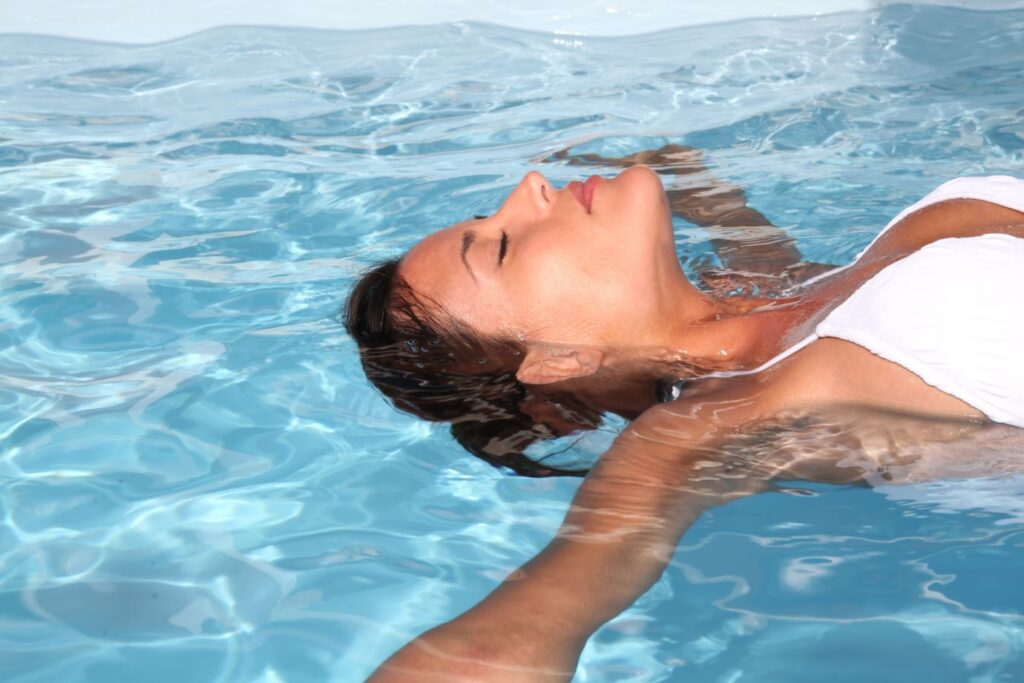A council in Greater Sydney has announced it is banning G-string bikinis at its public swimming pools, sparking debate about how policies like this police women’s bodies.
In a post to social media which has now been deleted, Blue Mountains Leisure Centres announced that G-string swimwear was not appropriate for women and men at its pools. The post came in response to some “confusion” about its existing guidelines.
“We’ve seen there’s been some confusion about what’s appropriate swimwear when you visit a Blue Mountains Leisure Centre pool. Much of it focused on a poster showing the kind of swimwear that is and isn’t appropriate. It’s important to remember that these images are indicative only,” the post said.
“In particular, the image of ‘revealing swimwear/thongs’ has raised some eyebrows. This image refers to thongs and G-strings – not bikini tops and bottoms.
“Thongs and G-string swimwear is not acceptable for males or females when visiting our leisure centres.
“Bikinis are acceptable and considered recognised swimwear.”
The rules affect a number of public pools including Katoomba Sports and Aquatic Centre, Springwood Aquatic and Fitness Centre, Blackheath Pool and Glenbrook Swim Centre.
A number of comments on the post on Facebook were outraged by the policy, saying that women’s bodies are continually policed in public in ways that men’s bodies are not. Many people drew the comparison between G-string bikinis and “budgy smugglers”.
“y’all best be banning old men in budgee smugglers too… they’re more exposed than any girl that goes to the pool,” one comment said.
“Shouldn’t people go to the pool to SWIM and not to worry about what other people are wearing?” said one person.
“This is absolutely ridiculous, the people that’s eyebrows are being “raised” shouldn’t be at a public pool if u can’t control yourself,” another said.
Speaking on the ABC’s The World Today, author and social commentator Jane Caro said how women dress their own bodies is entirely their own business.
“The excuse so often used is ‘oh well it makes men uncomfortable’. Sorry men, if it makes you uncomfortable, that’s actually your problem,” Caro said.
Meanwhile, on The Project, co-hosts Sarah Harris and Georgie Tunny said women should be able to wear whatever swimwear they are comfortable in.
“A lot of the comments have been ‘what will the kids think?'” Haris said. “I spend a lot of time at the beach with my kids, they’re not looking.”
“I just don’t care,” Georgie Tunney said. “I don’t care what people are wearing, if they feel confident enough to wear that then I’m all happy for them to do it, I wish I was one of you.”
It’s far from the first time public debate has been sparked in Australia over what women can and can’t wear in public spaces. Early in 2024, Gold Coast Volunteer of the Year, Ian Grace, wrote a letter to the mayor of the Gold Coast, urging him to ban G-string bikinis.
“While any man would enjoy ‘the view’, I believe women are very much demeaning and cheapening themselves, portraying themselves as sex objects, then decrying it when men see them that way,” he said in the letter.
There’s also been debate about how a policy, like the one at the Blue Mountains Leisure Centres, can be enforced. Who decides what is and isn’t enough coverage?
It’s been nearly 80 years since the modern day bikini was first worn by women. It was considered scandalous then and iterations of the swimwear have drawn continual public commentary in the decades since. If there’s one thing we know how to do as a society, it’s police women’s bodies.
It’s past time we stopped sexualising women’s bodies, whether they are wearing a G-string bikini or not.


